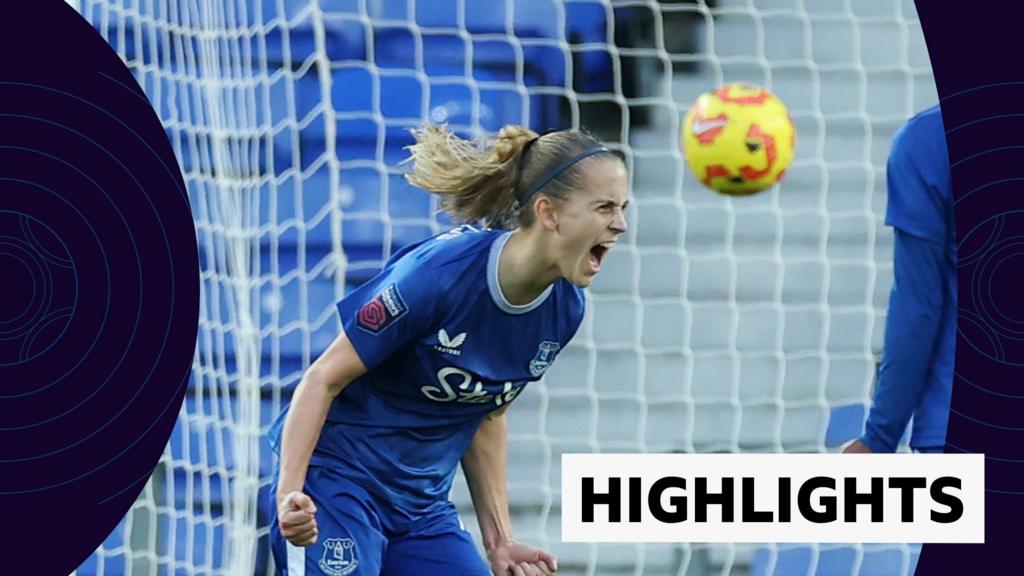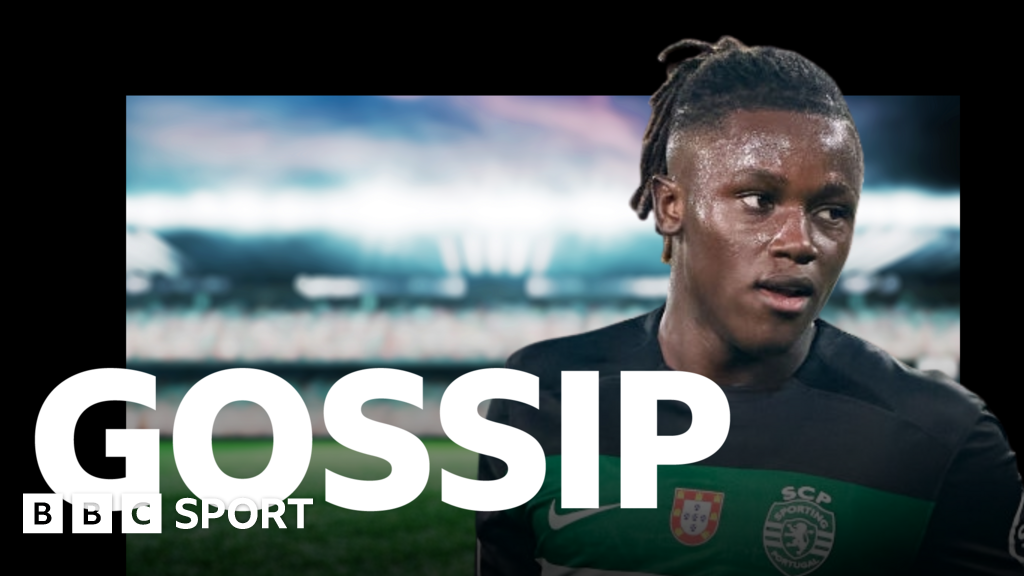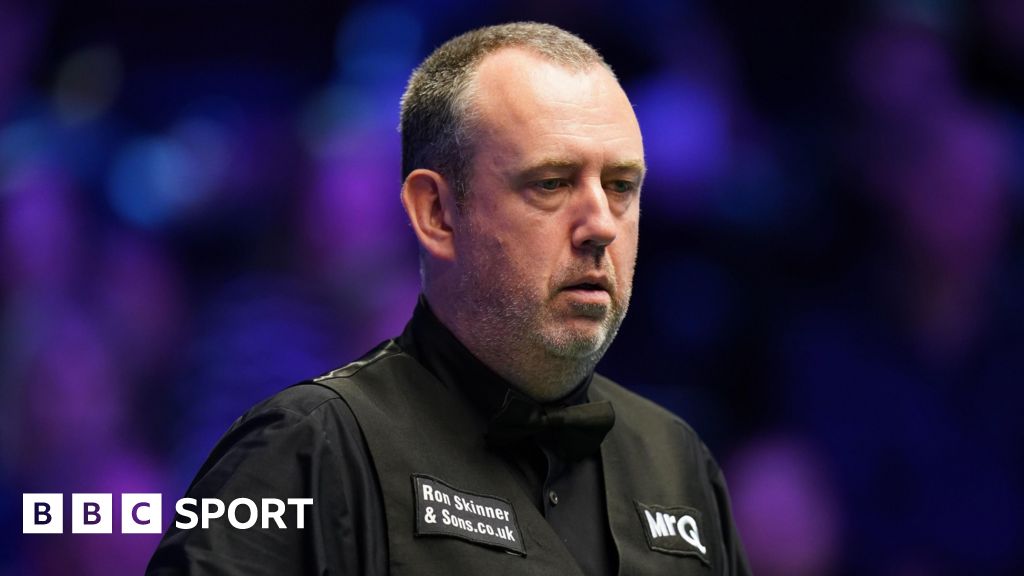ARTICLE AD BOX
Great Britain will "lick their wounds" after a disappointing Winter Olympics, and come back "roaring and fighting" for Milan-Cortina in 2026, UK Sport CEO Sally Munday said.
Team GB won just two medals at Beijing 2022, falling short of their target of three to seven.
The women's curlers beat Japan to win gold on the final day of the Games after the men won silver on Saturday.
Munday said she was "thrilled" for the curlers after a "disappointing" Games.
The medal haul was short of the five won at the previous two Games but there were a number of near misses as well, with three top-six finishes.
Asked why Britain's two medals came from one sport and they were not more competitive across more disciplines, Munday told BBC Sport it was "probably too soon to jump to conclusions".
"What is really important is that we review properly," she said.
"We ask all of the sports to do their reviews and we will look at all the contributing factors that go into making medal-winning performances. We really get under the skin of why it is that some that we thought might achieve success here didn't.
"Was it simply an error on the day, which can happen in the sports that we have here?
"Or are there things that are deeper than that?
"I think you probably liken us to a wounded lion. We'll lick our wounds, we'll work out what needs to be different and we will come back fighting and roaring for Milan-Cortina."
More than £22m was spent on funding the sports at Beijing 2022, with some receiving larger contributions than others.
£9.53m was spent on ski and snowboarding, and £6.42m was awarded to skeleton, with neither producing medals.
Meanwhile, Brad Hall's four-man bobsleigh team felt their sixth-place finish was "like a medal" after having to self fund their Olympic dream.
"Clearly a lot of money has gone into some of the sports that have come back with nothing and people, I suppose, will want answers as to why they haven't delivered the medals that you thought they would," added Munday.
"The sports will do their own reviews and I think that's important to get to the heart of the questions that will need to be answered.
"We will then sit down with each sport as part of our annual review process and get under the skin of what it is that they have learnt."
Speaking about the sixth-place finish in the men's bobsleigh, Munday added: "A massive congratulations to Brad and the team to achieve what they have, and the way they went about their determination to self fund.
"It is really impressive and so huge congratulations to them for what they have achieved here. I can't look back and say what I could and couldn't change in the past.
"What we can do is make sure that we review all of the sports."
However, Munday said success has to be measured in "greater terms" than just the return of medals.
She added: "We're disappointed with where we are and there's no shying away from that, but I've heard brilliant stories over the last couple of weeks of ice rinks and snow domes being packed to the rafters and people desperate to get in the door.
"The medal moments make us feel fantastic, but the definition of success for us is wider than simply the medals."
'We have to take each sport differently'
Munday's comments of disappointment were echoed by British Olympic Association chief executive Andy Anson, who acknowledged some difficult decisions lay ahead.
Anson also said more support should be offered to events with bigger teams rather than excellent individuals.
"We don't want to hide away from the fact that there will be sports and athletes going home who will be disappointed with the way things have gone out here," Anson told BBC Sport.
"It would have been nice to have achieved some medals on the snow and in the skeleton and bobsleigh, but that did not happen for whatever reason."
Speaking about the disappointment around some sports, Anson added: "We have not gone into it in detail, but there's different reasons in different sports.
"I think we have to take each sport differently. So skeleton not winning a medal is different to not winning a medal in skiing or snowboarding.
"In skiing and snowboarding there is so much jeopardy, and when we only have one athlete in each event, it is really difficult to win medals consistently.
"With UK Sport, we will work with the national governing bodies to make sure the strategy about really getting behind those teams where there is strength in depth, versus into individual athletes who just need supporting because they are individuals who are good.
"They're on the circuit doing very, very well and they need supporting, but maybe that is different, and supporting a whole team and a whole sport is what we have all got to get our heads around."
Sport needs to act over 'horrific' Valieva case
The Games were overshadowed by Kamila Valieva, the 15-year-old Russian figure skater who failed a drugs test.
Valieva helped her team win Winter Olympic gold in Beijing, after producing a positive test for the banned substance trimetazidine in December.
The positive result was only reported the day after Russia won team gold, and Anson said the whole story was a "tragedy".
"It's awful that a 15-year-old girl is testing positive for banned substances," he said. "There is no upside to that for anyone at all and it's a horrific story.
"We spoke to the International Olympic Committee (IOC) straight away and we pushed them to say that the whole entourage is properly investigated because we need to know if it is indicative of a more systematic issue that's going on still in Russia.
"If it is then the sanctions haven't worked and we need to revisit that.
"But for me, as the father of a daughter, seeing a 15-year-old girl having illegal substances in her is horrendous. So we have to do something about it. The whole sporting world needs to do something about it because it's not acceptable."

- Gassed Up: Rapper Mist takes on celebrity opponents in a daring driving challenge
- Villanelle and Eve are back: Watch the trailer for the extraordinary new series of Killing Eve


 2 years ago
23
2 years ago
23








 English (US)
English (US)